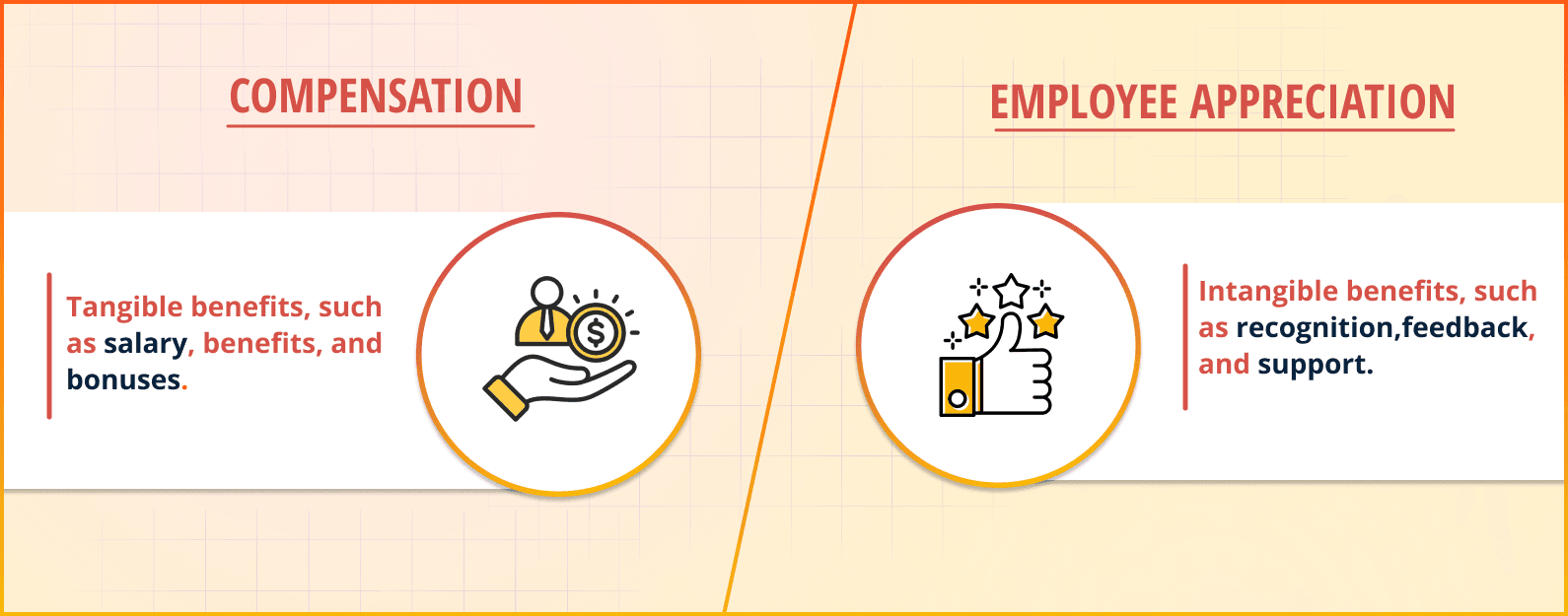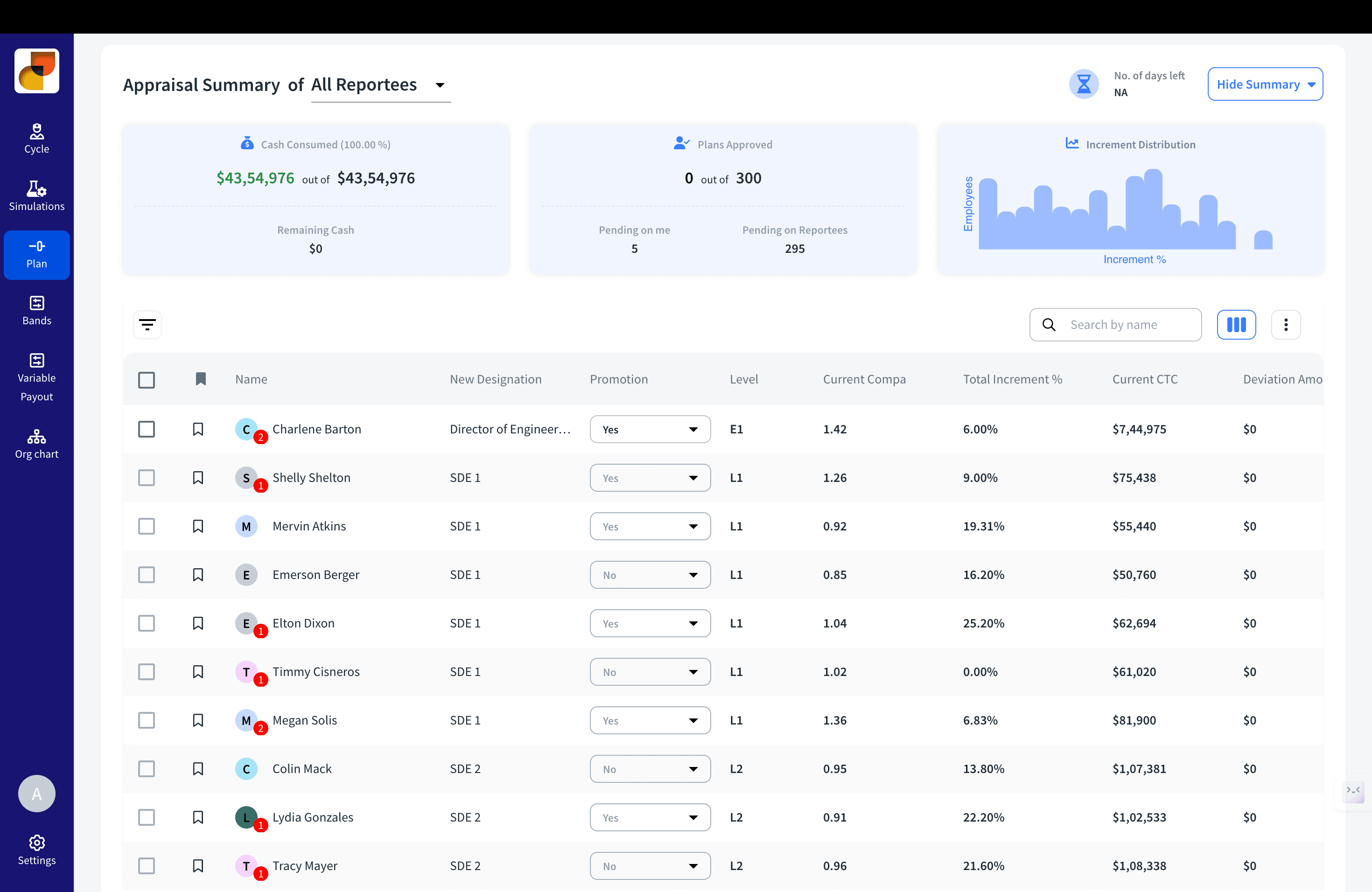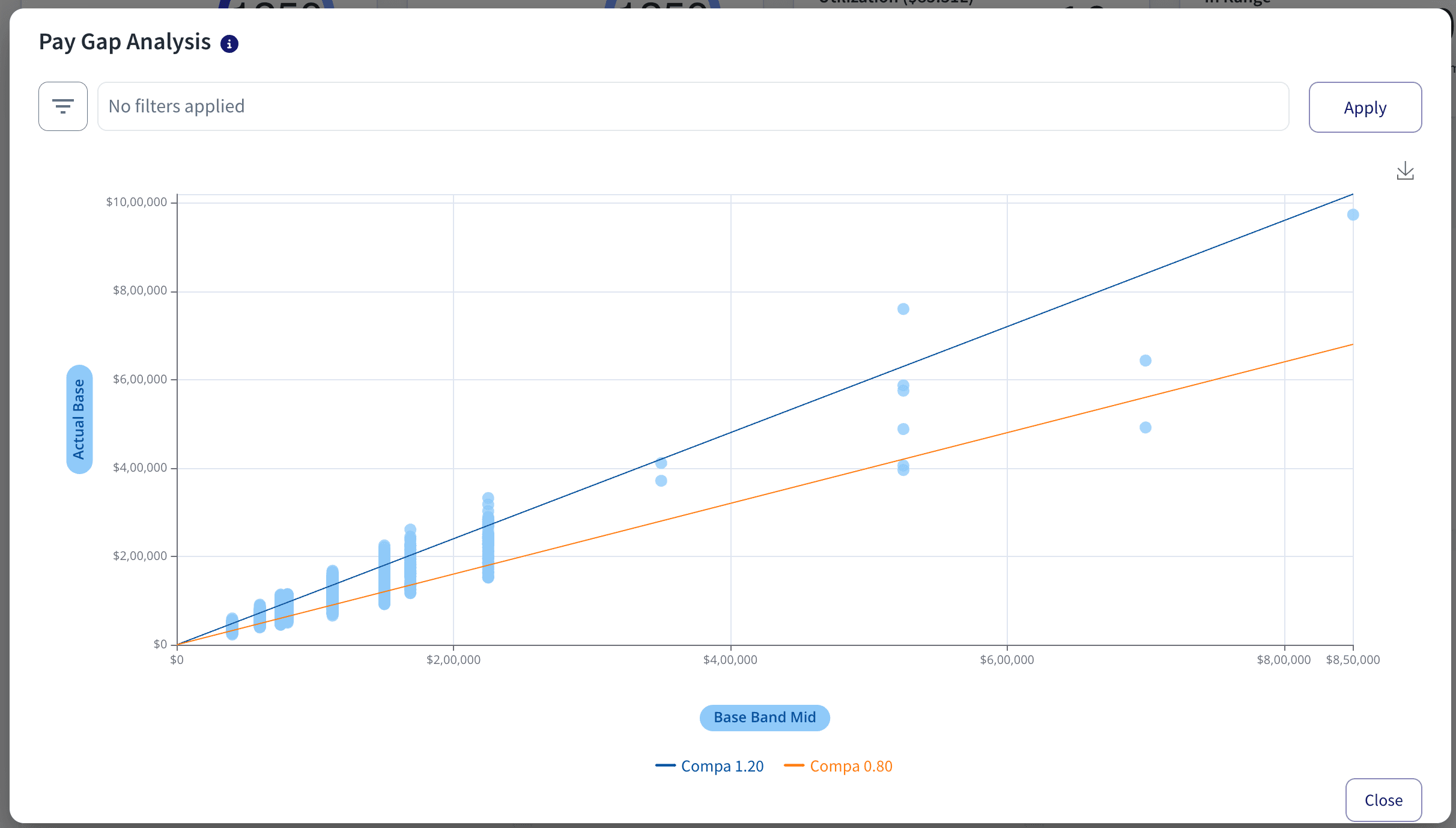
A study shows that while compensation plays a very important part in serving as motivation for the employees, it still doesn’t foster long-term commitments from the employees, yet appreciation of these employees will encourage them to be more efficient.
Both elements are vital for long-term business success, but what sets them apart? Let’s explore these key differences and their roles in creating a more motivating work environment.
While compensation and employee appreciation go hand-in-hand, it is important to understand how they have an exclusive impact on your people strategy. Knowing the difference between the two really helps with making sure that employees are more engaged.
Compensation is the monetary payment received by employees for their service at the workplace. It can include salary, incentives, additional bonuses, pension plans and more that are a means of monetary payment.
Employee appreciation must stem from the idea of providing employees with a space of work where they feel heard, seen, and supported. It is part of the ideal total compensation package.
Awards are given as a means of employee recognition for a particular performance or achievement of the employee, like hitting that sales goal brought by them or great performance from their side, like the employee of the month award. This encourages employees to stay motivated and work on themselves.
Whenever needed, there should be a clear channel of communication with the employees so that there is understanding, and the employees feel seen.
Programs that provide a sense of recognition and events where employees are gratified with rewards to recognize them and their importance in meeting with the organizational goals.
In order to shed light on the factors that actually go into creating a happy and engaged workforce, this investigation explores whether base pay alone can satisfy the complex requirements and goals of the entire organization from a great employee in today's competitive job market.
In the evolving landscape of employee satisfaction, the question looms large: Is base compensation sufficient to meet the expectations of the modern workforce? While a competitive salary is undoubtedly a key factor, the dynamics have shifted.
The contemporary workforce seeks more than just financial security.

Type of benefit:
Compensation: Compensation primarily includes monetary benefits such as the salary paid to an employee. Furthermore it also includes additional bonuses, incentives that are given to an employer by an employee.
Employee appreciation: It is very clearly non-monetary and is more a way to encourage a sense of validation and recognition for the employees. It also helps with the personal development of the employee.
Research shows that companies that use Employee appreciation programs are ranked with 14% higher performance.
Impact:
Compensation: The impact that it creates is more short-term gratification as it is simply a part of their contractual agreement as an employee about the pay or other things like stock options, retirement plans, bonus schemes and more that they receive in the company. It's a form of monetary compensation to employees.
Employee appreciation: This plays a crucial role in having a more long-term effect of these non-monetary rewards as it also aims at the personal development of the employee and increases employee morale and so it creates a sense of belongingness among the employees also helping in improving employee retention.
Compensation: Since Compensation is the monetary value agreed between an employer and employee it does not build any means of personal relationship, it is financial.
Employee appreciation: Whereas in appreciation to employees builds a more personal and long-term relationship with the employee.
Here are some great ways to make your employees feel like they are seen, recognized and more than that they are appreciated.
This can be done as a means of shoutouts or recognition like letting everyone in the office know that the particular employee in question has done an incredible job. Loyal employees will be the outcome of fostering such relationships with them.
Personalize thank-you notes and let them know you appreciate the uniqueness and efficiency they bring to the team. This can be a powerful motivator with financial compensation that is already given to the employees.
Giving them a flexible work option would allow them to feel more rejuvenated the next time they are at work so whether it's flexible hours or remote work, show you understand and trust them.
Offer professional development Opportunities and Chances for learning and growth that match the employee’s career goals. As this is more than just the financial form of rewarding them, this will act as an effective tool in overall success of larger companies.
Events like an Employee Appreciation Day or other recreational events that would help them have more high-spirited employees would majorly help. This has the biggest effect on an employee's personal esteem.
In a compensation strategy, appreciation to employees plays a key role as it attempts to weave together the very fabric of togetherness among a team of employees, eventually leading its way to organizational success. Such genuine appreciation can act as a very powerful means to influence employee engagement and improve it as well.
In fact, a particular study by Gallup found that 21% of employees who feel unappreciated say they will leave their current job, which clearly highlights why there is a need for appreciation and recognition of employees apart from the annual salary especially as a means of employee motivation.
Open communication is key. Having very candid discussions with your team about what truly matters to them is a clear way to strike that balance.
Understanding that every employee would have different needs and tailoring your approach to each employee as required can be a great way to encourage more productivity. This elevates the employee experience as it is more than regular salary and based on performance goals and individual performance.
Being able to align the interests of the company with that of the employees will enable everyone to work towards one goal as a team which will lead to that company’s overall success.
Regular feedback sessions keep the conversation between the employer and the employee flowing. Acknowledge their efforts promptly and make sure to guide your team toward success.
There isn’t always an already-made structure to a great rewards strategy; in fact, it has to be tailored to the company’s needs and payment systems.

CompUp has a comprehensive pay gap analysis dashboard that helps you study the pay disparities like the gender wage gap currently existing within your organization to help rectify them.

While compensation provides financial security that the employees definitely seek, employee appreciation nurtures the long-term relationship of the employee with the company. Together, they make up a powerful combination that drives employee engagement, loyalty, and satisfaction.
Click here to discover how the platform integrates AI capabilities in compensation management strategies.
Revolutionizing Pay Strategies: Don't Miss Our Latest Blogs on Compensation Benchmarking